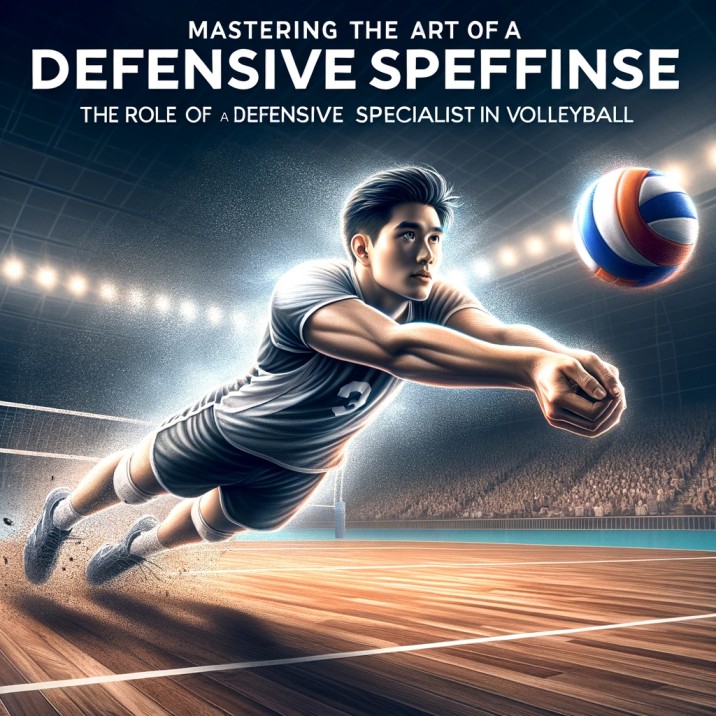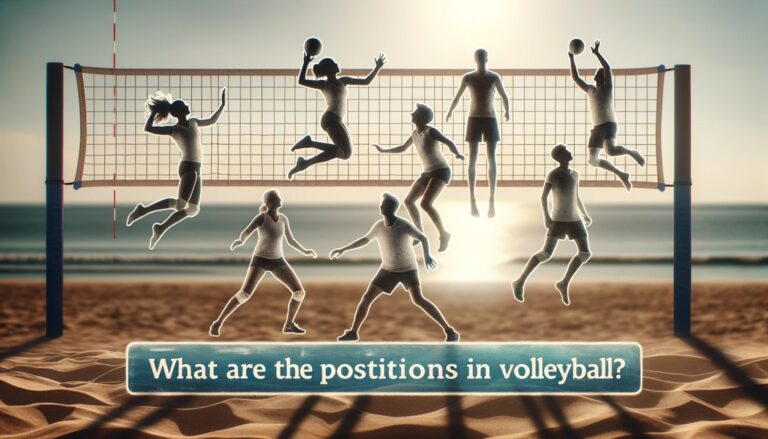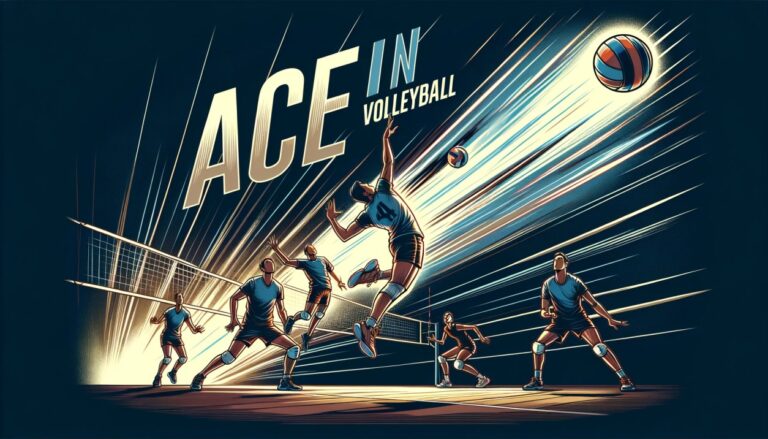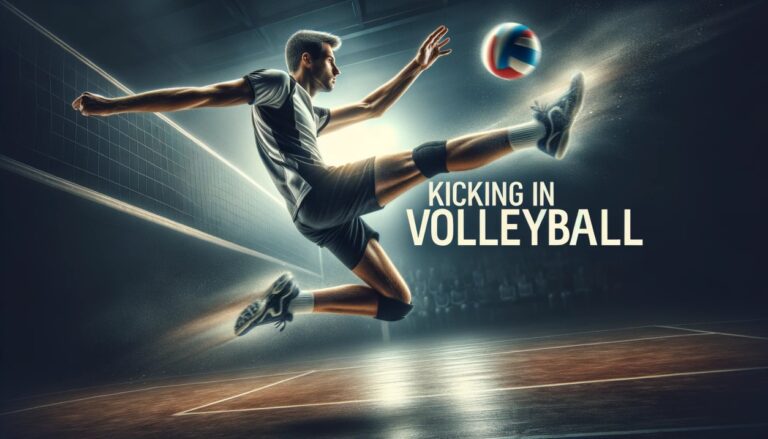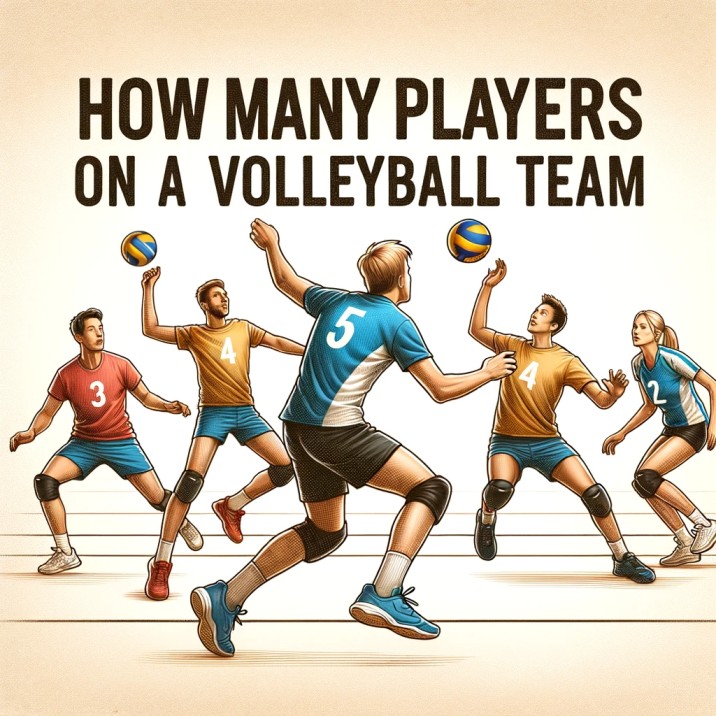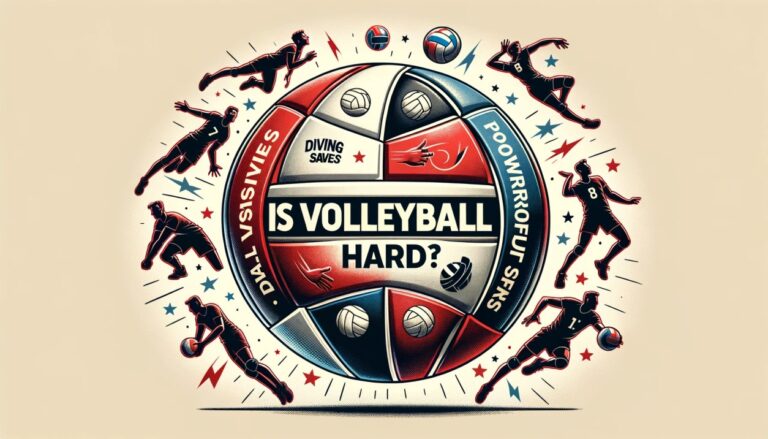Defensive Specialist in Volleyball: Your Complete Guide
Introduction of Volleyball Defensive Specialist
In this article, we’ll delve into the role of a Defensive Specialist in volleyball, exploring their responsibilities, skills, and how one can become a Defensive Specialist. By the end of this guide, you’ll have a comprehensive understanding of this crucial position and why it’s indispensable in the game of volleyball.
What is a Defensive Specialist in Volleyball?
Word Count: 200
A Defensive Specialist is a player in volleyball whose primary role is to provide superior defensive skills, particularly in the back row. They are often substituted in for weaker defensive players and specialize in digging and serve-receive.
Importance in the Game Dynamics
The Defensive Specialist is crucial for turning the opponent’s attacks into opportunities for their own team to score. They are the backbone of a strong defense and often set the stage for counter-attacks.
Brief History of the Position
The role of a Defensive Specialist has evolved over time, gaining prominence as the game of volleyball became more competitive and specialized. The position is now considered indispensable in high-level play.

Key Responsibilities of a Defensive Specialist
- Digging: Executing low, flat passes to keep the ball in play from powerful spikes.
- Serve-Receive: Accurately passing the ball to the setter from the opponent’s serve.
- Back-Row Attacks: Occasionally participating in attacks from the back row.
- Substitution Dynamics: Being subbed in and out based on the team’s defensive needs.
Skills Required to Excel as a Defensive Specialist
- Quick Reflexes: The ability to react swiftly to fast-moving balls.
- Excellent Court Vision: Understanding the game’s flow and predicting opponents’ moves.
- Communication Skills: Constantly communicating with teammates to coordinate defensive strategies.
- Physical Fitness: Stamina and agility are essential for diving and quick movements.
How to Become a Volleyball Defensive Specialist
Training Requirements
Becoming a Defensive Specialist requires rigorous training focused on agility, reflexes, and court awareness. Many players start with general volleyball training and then specialize.
Educational Background
While formal education is not a requirement, understanding the game’s technical aspects can be beneficial. Many players opt for coaching or sports science degrees.
Tips for Aspiring Players
- Work on your agility and stamina.
- Participate in drills that improve your digging and serve-receive skills.
- Watch and learn from professional Defensive Specialists.
Equipment Needed for a Volleyball Defensive Specialist
To excel as a Defensive Specialist, you’ll need some specific equipment to ensure both performance and safety:
- Knee Pads: Essential for protecting your knees during dives and falls.
- Specialized Shoes: Shoes with good grip and support are crucial for quick movements.
- Other Protective Gear: Wristbands, elbow pads, and moisture-wicking clothing can also be beneficial.
DS Vs Libero, What’s The Difference?
In volleyball, the terms “DS” (Defensive Specialist) and “Libero” refer to players who specialize in defensive plays, but they have different roles, rules, and responsibilities on the court.
Libero
- Uniform: The libero wears a different colored jersey to be easily identified.
- Rotation: The libero does not rotate positions like other players but substitutes freely in and out for players in the back row.
- Serving: In some leagues and levels of play, the libero may serve, but this is not universally allowed.
- Attacking: The libero cannot attack the ball above the height of the net.
- Setting: The libero can set the ball, but if they are in front of the 3-meter line, the ball cannot be attacked above the net.
- Blocking: Liberos are not allowed to block or attempt to block.
- Substitution: The libero can freely substitute in and out but only for back-row players. The libero’s substitutions do not count against the team’s total number of allowed substitutions.
- Specialization: The libero is specialized in defensive skills: digging, receiving serves, and passing.
Defensive Specialist (DS)
- Uniform: The DS wears the same uniform as the rest of the team.
- Rotation: Unlike the libero, the DS rotates positions like any other player.
- Serving: The DS can serve and is often subbed in specifically to serve.
- Attacking: The DS can attack the ball, unlike the libero.
- Setting: The DS can set the ball for an attack without any special restrictions.
- Blocking: The DS can block, although they are usually not in the front row to do so.
- Substitution: Substitutions involving a DS count against the team’s total number of allowed substitutions.
- Specialization: Like the libero, the DS is also specialized in defensive skills but is often used in specific rotations or situations.
A Good DS Can Save A Match
- Ball Control: One of the primary roles of a DS is to provide excellent ball control, particularly in serve-receive and defense. This can be crucial in tight matches where every point counts.
- Consistency: A good DS is often one of the most consistent players on the team. Their ability to reliably pass and dig can be a stabilizing factor for a team, allowing other players to focus on their specialized roles like hitting and setting.
- Momentum Shifts: A great defensive play can be a huge momentum booster for a team. A DS who can make spectacular digs or keep the ball in play when it seems like a lost cause can energize their teammates and demoralize the opposition.
- Tactical Flexibility: Having a DS allows the team to be more flexible in its tactics. For example, a DS can come in to replace a weaker back-row player, thereby strengthening the team’s defense without sacrificing too much on offense.
- Specialization: In higher levels of play, the game becomes increasingly specialized. Having a player who excels in defensive skills can make a significant difference, just like having a strong setter or a powerful hitter.
FAQs
What’s the difference between a libero and a defensive specialist?
While both roles focus on defense, a libero cannot attack the ball above the net and has unique substitution rules.
How can I improve my digging skills?
Practice low and flat passes, work on your reflexes, and participate in targeted digging drills.
Is height important for a defensive specialist?
Height is less critical for this role compared to other positions like the middle blocker or outside hitter.
What is a defensive specialist in volleyball?
A defensive specialist in volleyball is a player whose primary role is to excel in defensive plays, particularly in the back row. They are often substituted in for weaker defensive players and specialize in digging and serve-receive.
What is the difference between a libero and a defensive specialist?
Both the libero and the defensive specialist focus on defensive plays, but there are key differences:
- A libero wears a different colored jersey and has unique substitution rules. They cannot attack the ball above the net and cannot serve in most leagues (although some rules allow it).
- A defensive specialist doesn’t have these restrictions and can serve and attack, but they are often subbed out for front-row play.
What does the defensive specialist do?
The defensive specialist is responsible for:
- Digging: Executing low, flat passes to keep the ball in play from powerful spikes.
- Serve-Receive: Accurately passing the ball to the setter from the opponent’s serve.
- Back-Row Attacks: Occasionally participating in attacks from the back row.
How do you become a defensive specialist in volleyball?
To become a defensive specialist, you’ll need:
- Rigorous training focused on agility, reflexes, and court awareness.
- To work on specific skills like digging and serve-receive.
- To understand the game’s technical aspects, possibly through coaching or sports science education.
Can libero serve the ball?
In some leagues and under certain rule sets, the libero is allowed to serve the ball, but traditionally, they are not permitted to serve.
Is libero and setter the same?
No, the libero and setter are not the same. The setter’s primary role is to set up the ball for attackers, while the libero focuses on defensive plays.
Can a libero sub for both middles?
Yes, a libero can sub for both middle blockers but must adhere to specific substitution rules, which can vary depending on the league and level of play.
What is an offensive specialist in volleyball?
An offensive specialist is not a standard term in volleyball, but it would imply a player specialized in offensive skills like spiking, setting, or serving. These players would excel in scoring points rather than defensive plays.
What is stacking in volleyball?
Stacking in volleyball refers to a strategy where players line up or “stack” on one side of the court during serve-receive or defensive plays. This is done to maximize the efficiency of player movements and to deceive the opposing team.
Can a libero play front row?
No, a libero is restricted to back-row play and cannot participate in front-row actions like spiking the ball above the net.
Can a libero spike?
A libero cannot spike the ball if they are above the net. They are restricted to defensive plays and back-row attacks where their point of contact with the ball is below the net level.
Can a libero swing?
The term “swing” usually refers to an attacking hit or spike. A libero cannot “swing” at the ball in the traditional sense if they are above the net. They are limited to defensive plays and back-row attacks where the point of contact is below the net level.
How Important Is a Defensive Specialist In Volleyball?
The role of a Defensive Specialist (DS) in volleyball can vary depending on the level of play, the team’s strategy, and the specific needs of a given match. However, there are some general points to consider when evaluating the importance of a DS.
Do You Really Need A DS?
- Team Composition: If a team already has strong all-around players who are good at both offense and defense, the need for a specialized DS may be reduced.
- Level of Play: At lower levels of play, specialization is less common, and therefore, a DS might not be as crucial.
- Strategy: Some teams may opt for a different strategic approach that doesn’t heavily rely on a DS. For example, they might focus on a strong offensive game to minimize the need for extended rallies where a DS would be most useful.
- Resource Allocation: Training a player to be a DS takes time and resources. Some teams might prefer to allocate those towards developing more well-rounded players or focusing on other aspects of the game.
- Substitution Limitations: In some leagues and levels of play, there are limitations on substitutions, which might make it more challenging to utilize a DS effectively.
Is Defensive Specialist A Good Position?
The term “Defensive Specialist” is often used in the context of team sports like volleyball and basketball to describe a player whose primary role is to excel in defensive skills. Whether or not it’s a “good” position depends on various factors, including the player’s skill set, the team’s needs, and the strategy employed by the coaching staff.
How to Stand Out as a Defensive Specialist
Advanced Techniques
Mastering advanced techniques like the pancake dig can set you apart.
Importance of Mental Toughness
Resilience and mental toughness are crucial for maintaining performance under pressure.
Building a Portfolio for Scouts
Compile videos of your best plays and statistics to attract scouts and college recruiters.
Conclusion
In summary, the Defensive Specialist is an indispensable role in volleyball, responsible for key defensive plays like digging and serve-receive. With the right skills, training, and equipment, you can excel in this role and become the unsung hero of your team.
If you’re passionate about defense and willing to put in the work, the path to becoming a Defensive Specialist is wide open for you. Take the plunge, and you might just find your calling in this exciting and crucial role.
